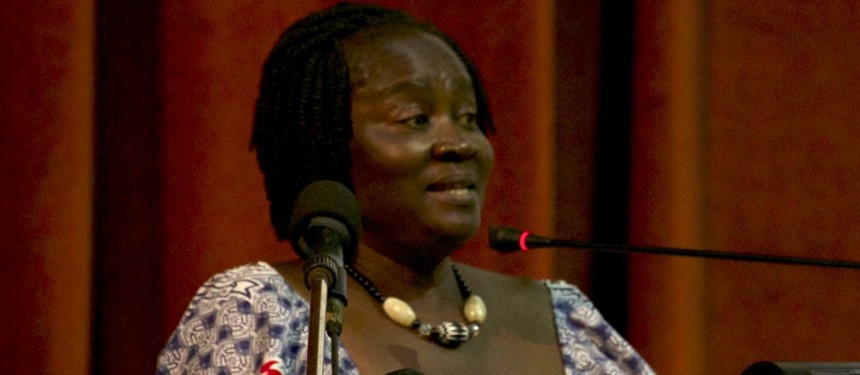Ghana has delayed the opening of its universities and colleges for the new academic year by at least two weeks so that it can put in place measures to screen international students coming from Ebola-hit countries, as institutions in other countries implement precautionary measures to prevent the spread of the deadly virus.
News and business analysis for Professionals in International Education
Have some pie!
Studies delayed, cancelled as sector reacts to Ebola outbreak
 Minister of Education Jane Naana Opoku Agyemang instructed higher education institutions to push back opening dates by two weeks.
Minister of Education Jane Naana Opoku Agyemang instructed higher education institutions to push back opening dates by two weeks. Minister of Education Jane Naana Opoku Agyemang this week instructed the country’s higher education institutions to push back opening dates by two weeks on the advice of the inter-ministerial committee on the Ebola virus in a bid to prevent an outbreak of the disease.
“Screening at the point of entry is not enough to say that we have adequately evaluated those people and have accessed them to be free from the disease”
The number of deaths in West Africa from the virus has risen to 1,069, according to the World Health Organisation’s website. Ghana has not yet had any recorded cases, but is just a few hours’ travel from Liberia, Guinea and Sierra Leone, which have had large outbreaks of the disease.
Deputy Education Minister Samuel Okudzeto Ablakwa, who oversees higher education, said in an interview that the Ministry will do all it can to preserve the stability of the academic calendar, which he said helps to attract international students who are very important for Ghana’s economy.
“The government is not ready to sacrifice that even as we protect ourselves from the Ebola disease,” he said.
According to UNESCO data, in 2012 Ghanian universities hosted some 9,000 foreign students with the majority coming from Nigeria, Gabon and the Ivory Coast.
In addition to delaying semester start dates, the Ghana Health Service (GHS) has also called on universities to implement extra monitoring of students from Ebola hit countries.
“Screening at the point of entry is not enough to say that we have adequately evaluated those people and have accessed them to be free from the disease,” Director of the GHS Disease Surveillance Unit, Dr Badu Sarkodie, said, insisting that students must be monitored for symptoms every day for 21 days.
Education institutions around the world are monitoring the situation closely and several US universities, including the University of Illinois, have implemented extra medical screening for incoming students from West Africa.
The university has also suspended its study abroad programmes in Sierra Leone for the upcoming fall semester.
“We decided it would be best not to put our undergrads in that situation,” Bo White, the university’s assistant director for international health and safety, said.
And New York University announced this week that it would not send students to its programme in Ghana this Autumn, owing to its proximity to countries which have had outbreaks.
”The decision to suspend classes for this fall was made less out of an immediate concern that students might contract the Ebola virus but was driven more by our concern about our ability to get students out of the country easily should the virus have spread and about the experience that students would have had in Ghana, given the current state of affairs in West Africa,” Carlo Ciotoli, associate vice president for student health, said in a statement.
”The decision to suspend classes for this fall was driven by our concern about our ability to get students out of the country easily should the virus have spread”
The University of New England also abandoned a planned trip for a group of medical students and faculty to Ghana last week, and Georgetown University is considering doing the same for a similar upcoming trip.
In compliance with the Centre for Disease Control’s advice to avoid nonessential travel, Georgetown has also temporarily banned its students and staff from travelling to Liberia, Sierra Leone and Guinea.
Jamie Hastings, Regional Coordinator for West Africa at Robert Gordon University in Scotland who is responsible for recruiting students from Nigeria, Ghana and Uganda, told The PIE News that the university is “keeping a close eye” on how developments such as travel restrictions may affect incoming students.
“Hopefully it’s not going to escalate in Lagos, because if it does, obviously being the most populous city [in Nigeria], that would be really worrying,” he added, referring to a small cluster of cases that have appeared in recent days.
Still looking? Find by category:



9 Responses to Studies delayed, cancelled as sector reacts to Ebola outbreak